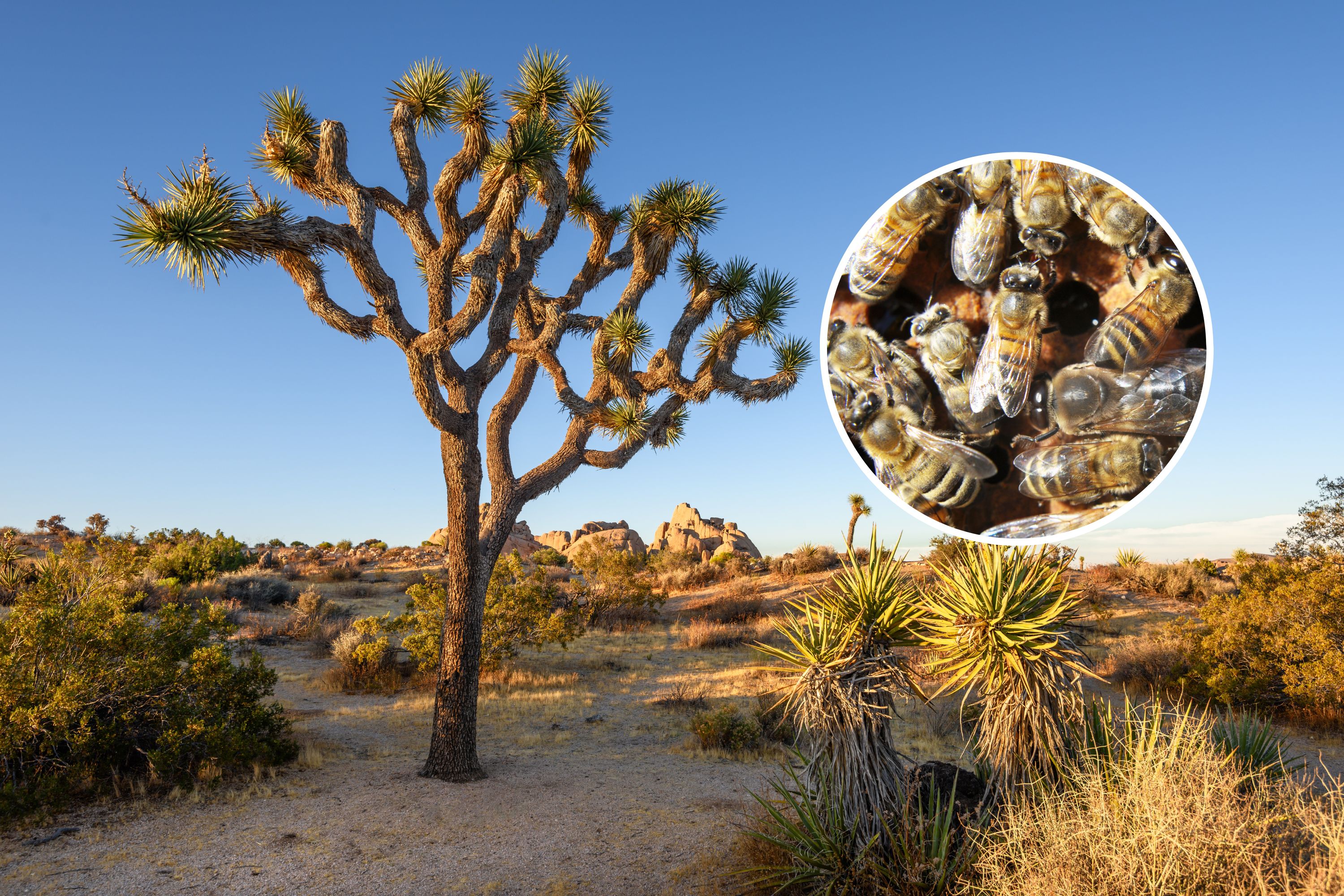Parts of the famous Joshua Tree National Park in California have been closed to visitors due to “increased bee activity.”
Due to the extreme temperatures in the park, bees have begun to gather near water sources.
Joshua Tree National Park said in a Facebook post that the Cottonwood Visitor Center, campground, and nearby restrooms and parking lot have been closed to protect visitors from the invasive honey bees and to cut off their water supply in the hopes that they will eventually fly away.

ISTOCK / GETTY IMAGES PLUS
“The Cottonwood Visitor Center, parking lot, restrooms and Cottonwood Campground are temporarily closed due to increased bee activity,” the park’s post said. “During the summer, water becomes scarce and bees, like other wildlife in the park, seek out water sources. However, this may include condensation from air conditioning units, visitor sweat and bathrooms.”
“Park officials are closing the area to visitors for safety reasons and to reduce the humidity that attracts the bees in the summer. The closure will reduce water availability for the bees and give them time to leave the area.”
In the video posted on Facebook, the bees can be seen crowding under a car and gathering around a damp patch on the asphalt.
Located about 30 miles north of the Salton Sea, Cottonwood Campground is one of five campgrounds in Joshua Tree National Park. The park is named after the iconic Joshua tree (Yucca brevifolia), a plant with a unique shape that dominates the landscape and is found primarily in the Mojave Desert portion of the park.
The climate is typical of a desert environment, with daily highs in summer often exceeding 100°F (38°C). Temperatures in Joshua Tree have been rising sharply recently, with highs of up to 120°F (49°C) recorded in the park last month.
This intense heat is probably the reason why the bees gather, as there is less water to drink in the wild.
The high temperatures have also affected other animals: a ten-month-old Doberman puppy had to be rescued after it disappeared in the park during a heat warning in early June.
“The dog was stuck on a ledge and was in poor condition due to dehydration. The rescue team was able to give the dog water and lift him off the ledge. The dog was then picked up by the Riverside County Department of Animal Services, who contacted the owners,” the national park said in a statement.
“Pets must be with their owner on a leash at all times and are not allowed on hiking trails when visiting the park. Summer conditions can be deadly for pets due to elevated temperatures, wildlife encounters, average soil temperatures of 120 degrees Fahrenheit, and sharp cacti. We recommend leaving pets at home during harsh summer conditions.”
Do you have a tip for a science story that Newsweek should cover? Have a question about bees? Let us know at [email protected].


